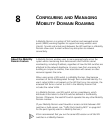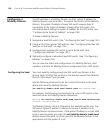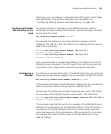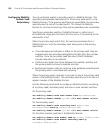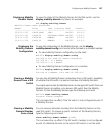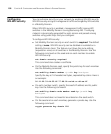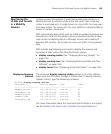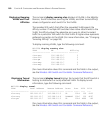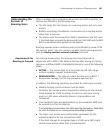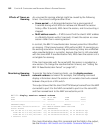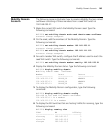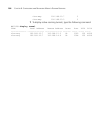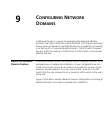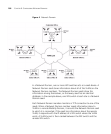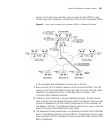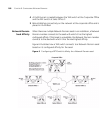
Understanding the Sessions of Roaming Users 161
Understanding the
Sessions of
Roaming Users
When a wireless client successfully roams from one MAP to another, its
sessions are affected in the following ways:
The WX treats this client session as a roaming session and not a new
session.
RADIUS accounting is handled as a continuation of an existing session,
rather than a new one.
The session with the roamed-from MAP is cleared from the WX, even
if the client does not explicitly disassociate from the MAP and the IEEE
802.1X reauthentication period has not expired.
Roaming requires certain conditions and can be affected by some of the
WX switch’s timers. You can monitor a wireless client’s roaming sessions
with the display sessions network verbose command.
Requirements for
Roaming to Succeed
For roaming to take place, the roaming client must associate or
reassociate with a MAP in the Mobility Domain after leaving an existing
session on a different MAP in the Mobility Domain in one of the following
states:
ACTIVE — The normal state for a client that has left radio range
without sending a request to disassociate.
DEASSOCIATED — The state of a client that has sent an 802.11
disassociate message, but has not roamed or aged out yet.
In addition, the following conditions must exist for roaming to succeed:
Mobility Domain communications must be stable.
Generally, the communications required for roaming are the same as
those required for VLAN tunneling. A client can also roam among
ports on a WX when a Mobility Domain is inaccessible or not
configured.
Client authentication and authorization on the roamed-to MAP must
be successful on the first attempt.
If authentication or authorization fails, MSS clears the client session. Depending
on when the failure occurs, roaming can be disqualified or delayed.
The client must use the same authorization parameters for the
roamed-to MAP as for the roamed-from MAP.
If the client changes its encryption type or VLAN name, MSS might
record a new session rather than a roamed session.



